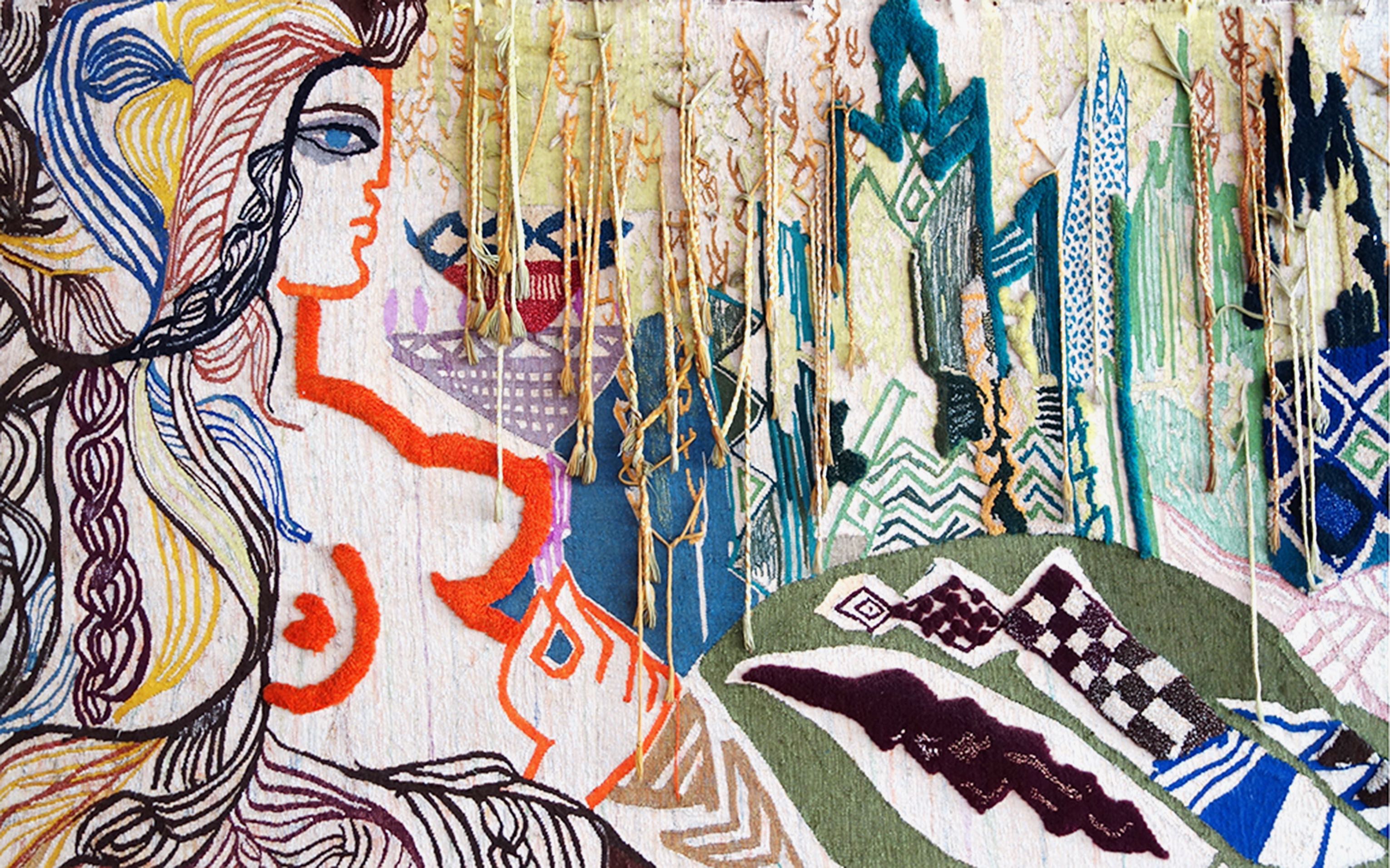On Weaving and Deciphering the Biographies of Artists
Monday 6 June 2022, 14:30 to 16:00

This talk reflects on the speaker’s writing about the life and artistic career of Safia Farhat (1924-2004) and her collaborator Habiba Doula (b. 1946). Safia Farhat was the sole female member of the Ecole de Tunis, an elite group of Tunisian, French, and Italian artists formally trained as painters. Habiba Doula was one of eight women weavers from the laboring class who translated Farhat’s sketches into monumental, three-dimensional woven forms and imbued them with their own meaning.
By focusing on the transformative and collaborative act of weaving, the presentation highlights the intertwining of biographies, revealing how artists lived and created in social and historical context. In researching Farhat’s artistic trajectory, Gerschultz could not disentangle her history and œuvre from her lived experience as a woman, and specifically, as one who engaged with Doula and other women in deeply imaginative and generative processes. Their creativity traversed generational and class lines, and refuted colonial-inflected notions of authorship and of weaving as rote feminine labor.
Jessica Gerschultz is an Associate Professor in the department of African and African- American Studies at the University of Kansas. Her research examines modern and contemporary art, gender and craft, and feminist art histories and methodologies.
This talk is part of Moving Biography, a one-week international summer school convened by LAWHA/Orient-Institut Beirut, the American University of Beirut (AUB) and the Global (De)Centre, and taking place in Beirut from June 1 to 8, 2022.
Moving Biography is funded by the Volkswagen Foundation.




